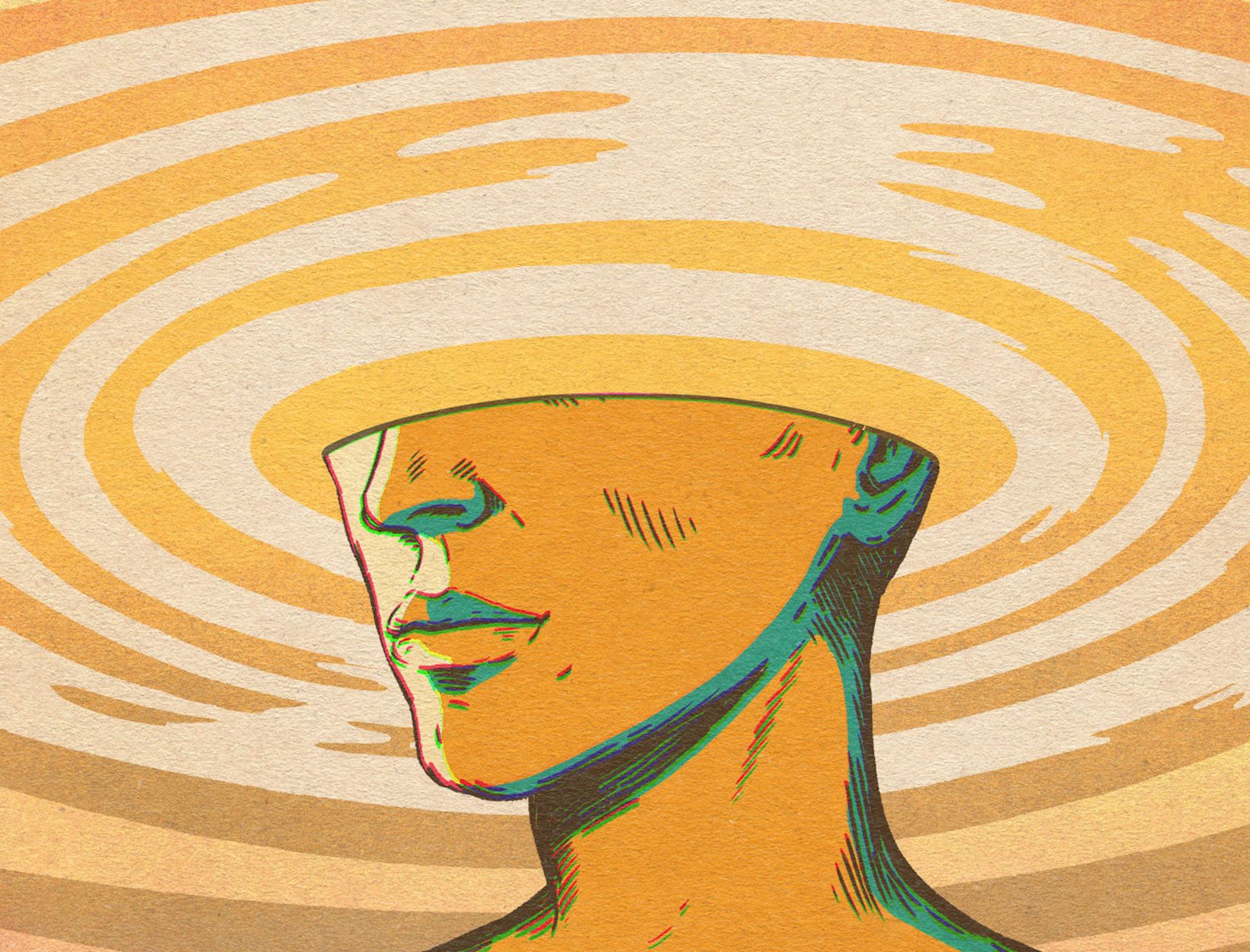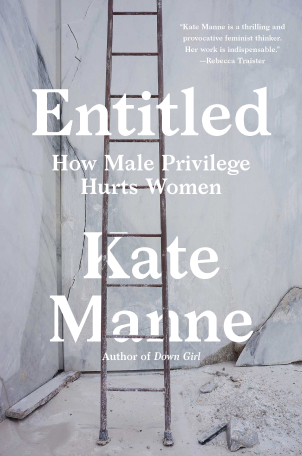A Philosopher on Mansplaining and Gaslighting | Goop

A Philosopher on Mansplaining and Gaslighting
A Philosopher on Mansplaining and Gaslighting

Kate A. Manne, PhD, is an associate professor of philosophy at Cornell University who researches misogyny and gender bias. Her latest book is Entitled: How Male Privilege Hurts Women. (Not a spoiler: It hurts men, too. It hurts everyone.)
Manne reports on the “second shift” problem in heterosexual relationships, the differences between how we view women in power and how we view men in power, racism in medical care, and the urge to soothe men. “We’re trained that it’s our job, our responsibility, even our moral duty to cater to men’s feelings and not to hurt or humiliate them,” says Manne. “To keep the peace and then to make the peace if there’s conflict.”
A Q&A with Kate Manne, PhD
Men are deemed to be entitled to things like sex, most obviously, but still more insidiously things like love, care, power, and claims to knowledge. And women and girls are punished if they don’t give men what privileged men are deemed to be entitled to.
It is important to say that male entitlement isn’t just a feeling. It’s a set of social structures. Men are not just feeling entitled to have unwanted sex with women; they are actually deemed entitled to it in society. One of the examples of this in my book is that of Rae Florek and Randy Vannet in Minnesota, where he was her on-again, off-again boyfriend, and he raped her by having sex with her while she was unconscious. She found out about this because he boasted about it to her. She felt intensely violated, and she took the matter to the police.
Not only did the police not take it seriously, but the prosecutor didn’t even press charges after Vannet confessed to this crime. Vannet was willing to admit that he had raped her by having sex with her while she was unconscious. But because he was someone who had had a prior relationship with her, he was deemed entitled to have her. The matter never went any further in the criminal justice system, and that’s an incredibly common outcome.
Yes, this is a huge problem that has emerged thanks to some brilliant investigative journalism. It’s been shown that in many jurisdictions, police are clearing rape cases by what is known as exceptional clearance. The classification is intended for cases where they can’t arrest the perpetrator for some reason, like he is deceased or already incarcerated. But in these cases, we’re seeing that police are clearing the cases for no good reason even when the perpetrator is known to the police and they have probable cause for an arrest. They’re effectively shrugging their shoulders about rape cases in many jurisdictions in the US.
There is also the perhaps better-known problem of untested rape kits, where victims, predominantly girls and women, as well as some nonbinary folks, have their kits languish untested for years and years despite the kits being evidence that could be used to pursue and to prosecute serial rapists in some cases.
It is clear that these cases aren’t being taken seriously in the system as it exists currently. And it’s been shown that women of color and trans women are especially vulnerable to sexual violence and to a lack of interest on the part of police and prosecutors in many cases.
I have in mind the way that cis women’s reproductive autonomy has been attacked and curtailed, especially given current assaults on reproductive rights. I’m thinking about the antiabortion movement. And I’m also thinking of ways that trans women have had their bodies policed, such as having their access to restrooms restricted, and of moral panics about what it means for trans women to be in women’s spaces or playing women’s sports, all of which are unjustified by empirical evidence.
I think he was one person in a long line of politicians who have subscribed to false beliefs and outright myths about the female reproductive system. He was making a comment about what he termed “legitimate rape,” holding that pregnancy wouldn’t result from rape because a woman’s body would somehow intuit that it was an act of rape and so wouldn’t conceive, which is not only false, of course, but ludicrous. So he was trying to make the case that there was no real need for a rape exception to antiabortion laws because women simply wouldn’t get pregnant. Just some kind of magical thinking about the uterus.
Unfortunately the answer is yes. We’ve seen this during the pandemic, but it should have come as little surprise because for twenty years, what sociologist Arlie Hochschild terms the “second shift” problem hasn’t improved. The second shift problem is that when they’re in heterosexual relationship, women effectively work a second shift after their paid work, where they come home and do more child-rearing and domestic labor than their male partners do.
We still have this problem that hasn’t budged, of women doing twice as much domestic and child-rearing labor as their male partners when they are in a heterosexual relationship with children.
The only context in which on average male-female couples will approach equality in terms of domestic and child-rearing labor is when she works full-time and he is unemployed. But he will still do a bit less than she does, even in those contexts. And some research is even more pessimistic than that and holds that if there’s a danger that he’ll feel emasculated because she has a much more successful career than he does, then she’ll actually end up taking on more labor at home to compensate for his feelings of inadequacy.
That sense of entitlement to have your feelings catered to, ministered to, is a big part of the care that privileged men feel entitled to and that women are falsely deemed obligated to give. We’re trained that it’s our job, our responsibility, even our moral duty to cater to men’s feelings and not to hurt or humiliate them. To keep the peace and then to make the peace if there’s conflict.
It makes women common targets for gaslighting where gaslighting can be understood as an attempt to remove the possibility of conflict by dominating someone so that they feel in danger of being depicted as crazy or a bitch if they challenge a certain narrative. The sense that women have to be the peacemakers has big effects across the board. [Editor’s note: Manne explains the origin of the term “gaslighting” in Entitled.]
I think that often mansplaining derives from a man’s sense that he is entitled to be positioned as the authority figure and the person who gives information, rather than to be in the more vulnerable position of being the learner or the listener. It has an enormous impact on women, and not just in terms of it being intensely irritating to be mansplained to when you’re the expert on a topic. It can also erode a woman’s confidence and sense of self, her sense of her own genuine entitlement to be treated as an expert or an authority figure.
In that part of my work, I’m drawing on some interesting studies by Madeline Heilman of NYU and her collaborators, who showed that if you give people identical files that you label either James or Andrea, alternating them for every second participant, 86 percent of people will judge James to be more competent than Andrea.
Then the researchers found that if you tell participants that Andrea and James are both highly skilled leaders in their field, 83 percent of people judge James to be more likable than Andrea. What this suggests is that people find reasons for preferring a man to a woman. In this case it was a leadership position in a masculine-coded domain in an aeronautics industry job.
People will find reasons to prefer the man even though there are no good reasons. The people got identical information about these two employees, on average. I think that carries over to a plausible story about women’s power. Women who seek power in masculine-coded positions are often deemed incompetent, or if their competence is clear, they’re deemed unlikable. Or as we’ve seen more recently, we find other reasons to dismiss them, like their being unelectable, which is a self-fulfilling prophecy. It’s something attributed to a woman as if it’s an intrinsic property of her, rather than the fact that people have sexist and misogynistic biases against her as a woman.
We see incredibly damaging ways in which women, especially women of color, are dismissed and treated as hysterical or as malingerers instead of as people who are in pain or have genuine complaints that need to be taken seriously. And this has devastating consequences. The maternal mortality rate for Black women in the US is three to four times the rate for White women. The most vulnerable and discriminated-against women face enormous biases to having their pain and suffering taken to be serious, genuine, and something that deserves empathy and care rather than something that’s grounds for dismissal.
“Entitlement” is not a dirty word. But some people are deemed too entitled to certain goods, and here I’m thinking predominantly of White men. Other people who are entitled to certain goods, like medical care, are denied what they’re genuinely entitled to. For example, Black women are often denied their due in terms of appropriate empathy and care as we just discussed. Part of the aim of the book is to expose this asymmetrical gendered and racialized system of unequal entitlements in the hopes that girls and women, especially girls and women of color, will be more supported by general social structures in claiming what they are in fact entitled to and are often denied in ways that are deeply unjust.
Kate A. Manne is an associate professor in the Sage School of Philosophy at Cornell University. She received her PhD in philosophy from MIT and her BA in philosophy from the University of Melbourne. Manne’s research focuses on moral philosophy, feminist philosophy, and social philosophy. She is the author of Down Girl: The Logic of Misogyny and Entitled: How Male Privilege Hurts Women. Manne has contributed numerous opinion pieces and essays on misogyny and gender bias for a wide audience.
We hope you enjoy the books recommended here. Our goal is to suggest only things we love and think you might, as well. We also like transparency, so, full disclosure: We may collect a share of sales or other compensation if you purchase through the external links on this page.
This article was originally published by goop.com. Read the original article here.





